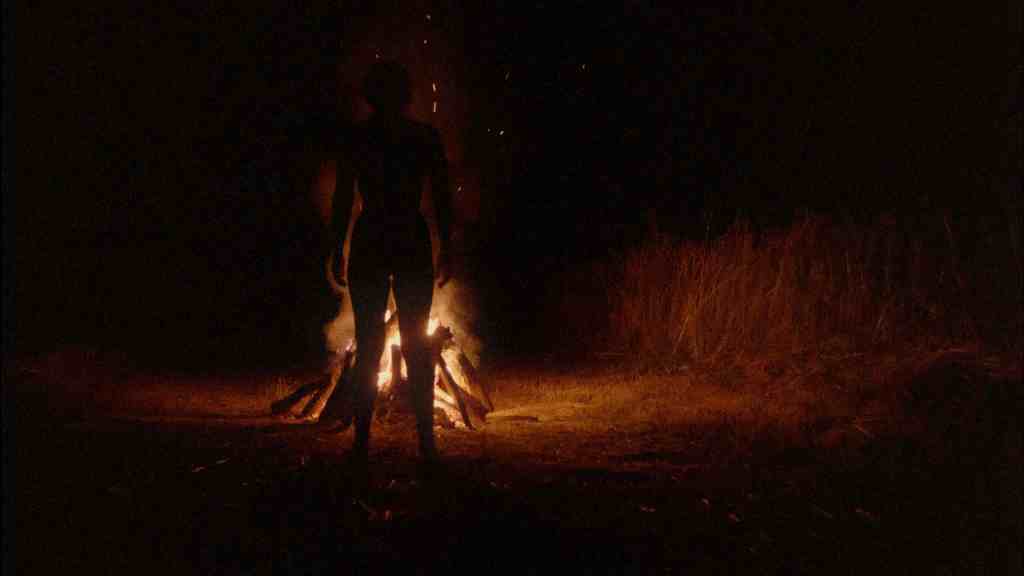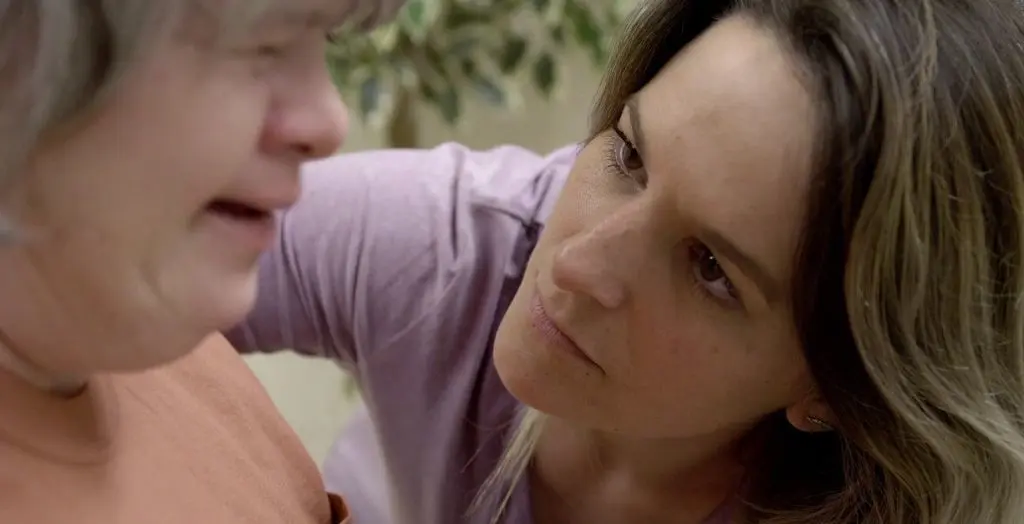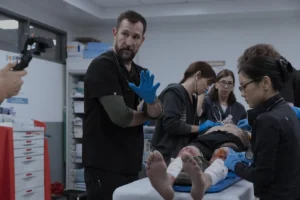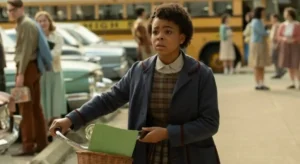Summary
Psychological horror that brings a cult survivor into the world of adults with special needs. Is her experience more real than theirs? And who do they need protecting from?
Just a couple of days ago, I wrote that it’s often impossible to know who or what to believe in films that feature cults. The subject of Dementer is Katie (Katie Groshong), a woman who has left a cult much more recently than Laura in Son, and its post-trauma influence is therefore much stronger. Apart from that essential premise, this is a very different film, with an emphasis on realism and zero showbiz glamour.
After a weird and suitably grating prologue (does every horror film use a prologue these days?), we see Katie interviewing for a job looking after adults with Down’s Syndrome and other learning disabilities. She seems to be both a natural and genuinely keen, and is offered the job, which is going to involve both day and night shifts; but that’s OK: Katie doesn’t sleep much anyway. However, she seems to have come to this job straight from a traumatic situation, and although she is focused on putting it all behind her, that is clearly easier said than done. Consequently, when Stephanie (Stephanie Kinkle), one of her charges, becomes sick for no apparent reason, what Katie sees is that “the devils” are on the way and she goes back to what she learned under Larry’s (Larry Fessenden) tutelage to provide Stephanie with all the protection she can.
Chad Crawford Kinkle wrote and directed Dementer, partly because he was keen to see people with conditions like his sister’s in authentic roles on screen. Many of the “characters” we see are people with genuine special needs or those who care for them in real life, making the scenes in their setting come across almost like a reality-style TV documentary show. I was concerned at first that Dementer was going to turn out to be exploitative to some degree, but it didn’t take too long to see that – like the grandmother in Sator – Kinkle’s sister, Stephanie, was presented in a faithful and affectionate way; as indeed were the others she spent time with. Kinkle didn’t just come up with a story that could feature such adults, but the role of Stephanie was actually very appropriate for someone with Down’s Syndrome: a “vulnerable adult” could easily be seen as needing protection more than the average person, and would also be naïve enough to accept what she is presented with. Everyone in the film had the same first names as the people portraying them (a familiar device by now), which was perhaps the belt-and-braces approach to realism.

That realism earned my respect straightaway; not just for how well it was achieved, but also for the way it enabled my disbelief to be suspended so easily for the other aspect of the film – that of Katie’s trauma – to feel just as real. She has scars to show for her previous experiences, but were “devils” really involved, or simply human brainwashing? Is a devil truly coming for Stephanie, or is Katie herself the (unwitting) danger in Stephanie’s life? Either way, Katie clearly hasn’t been able to shake off her earlier influences, and I can feel the terror that plagues her on Stephanie’s behalf. As well as Groshong’s very convincing performance, this sympathy I can feel for her also comes from the production and editing styles. Dementer is a film of very little budget, so instead of jump scares and gruesome special effects, rapid clips of Katie’s memory (or hallucinations) are slipped in here and there, more as the film goes on, so we can see what’s preying on her… while those around her are only aware of the “real world”.
These brief flashbacks (in a cinematic and emotional sense) give strong clues to Katie’s background, but not a full back story as such. However, they are reinforced with a score both harsh and eerie, thanks to Sean Spillane, and with a gloomy male voice providing occasional narration. The whole production is very unsettling (taking me back to Antrum at times) so that although Katie may be acting on misguided motives, it is very easy to get into her head.
The only issue I had with Dementer was the lack of clarity about the plot. Sure, the events in Katie’s workplace were straightforward enough, and I didn’t mind ambiguity about her past (who knows what really takes place in cult environments anyway?). But when I reached the end of the film, yes it had a firm sense of an ending, but I still don’t really understand what happened. It might be that that was intentional, showing us that Katie acted without knowing what she was doing, but it left me feeling like I had missed something. Despite that, Dementer is an impressive film, for both its production style and its blend of horror and reality.




